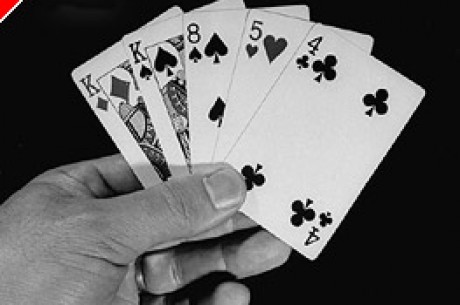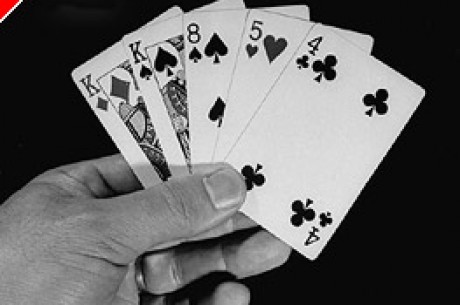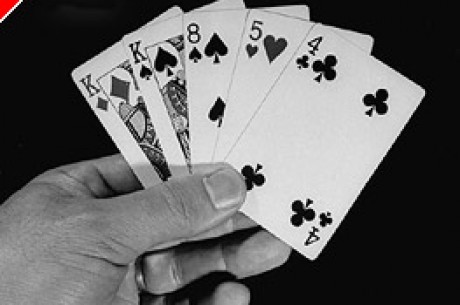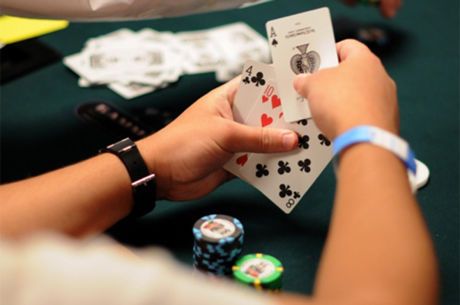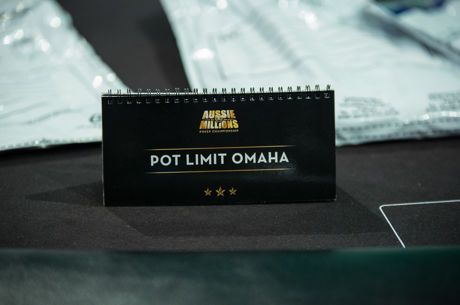Talking Omaha - Spinning Your Web
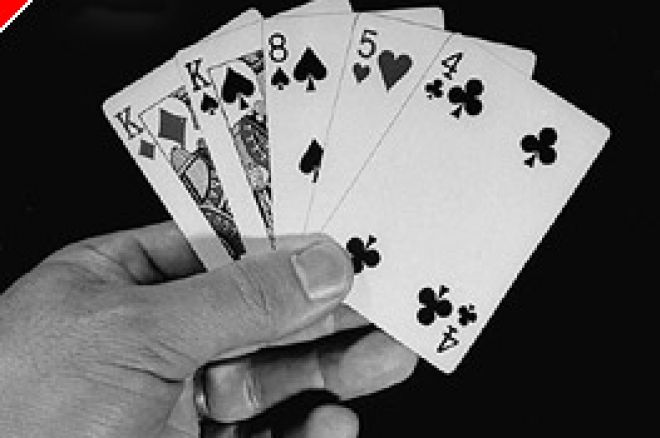
Tony is a regular on-line and card room player living in England. He mostly plays Texas Hold'em and Omaha (High and Hi/Lo) at fixed, pot and no limit, at both cash and tournament tables.
At the current stage of the "poker cycle", new players are continuing to flood into the poker-playing world, far outweighing those leaving. The leavers are likely to be casual players who have suffered some early financial shocks and become dispirited or simply unable to finance themselves. The new players can be just about anyone enticed in by advertising, word of mouth, and of course a good number of the dispirited leavers who can't quite get it out of their systems, and come back with a new slug of income to give it another go!
The majority of new players play Texas Hold'em. Almost 100% probably play this first because it is all a new player ever sees "advertised" on TV programming and tournament banners. So, exactly who do we have playing on the Omaha tables when we want a game?
I would hazard a guess at a mix of specific groupings whom you will need to identify if you are to run a successful campaign at the Omaha tables.
There are the Omaha specialists, experienced players who know what you do, and are likely to be hard to outwit. They know only too well that the tables contain "Texas Hold'em players" looking for a bit of action where the hands come thick and fast. If you spot one, make copious notes and try to avoid him or her in future.
Then there are the Omaha junkies, those "Texas" players who have moved on to become action freaks who find Texas Hold'em simply too "boring". They do not know the finer points of Omaha but love to mix it up and raise pots. They can hit obscene streaks of good cards and take enormous pots one after the other. This high is what gets them coming back. They have money to burn and over time they do just that.
Third, there are the new kids on the block wandering in for a dabble at Omaha. They will either get hooked and study the game, or perhaps morph into one of the action junkies. Often they will suffer losses and disappear back to Texas Hold'em with a low opinion of the skill factor in Omaha. I want to talk more about this group.
As I said above, the poker world is becoming crowded with a lot of new blood, inexperienced and looking for a good time. They are easily exploitable, which is a necessity in this jungle. You are here to extract money from other players and if you feel any pangs of guilt about that, maybe poker is not for you.
I have read comments by a leading Omaha cash table professional that he does not seek to play at the top games with the best professionals and biggest stakes; he looks for the "best" games! Does that sound contradictory to you? If it does, you miss the point. His definition of a "best game" is one that has opponents are not up to his standards, generally containing players who are loose or cavalier. He wants to sit down at a table where he has an edge and can, over time, take their money.
Of course, watch any game of pot limit Omaha where the players are generally loose and ill-disciplined and you will see a game of frightening variations and swings. Our professional is not afraid of admitting that some nights he can get taken for several lumps of his bankroll if the cards are not running. He is armour-plated when entering a pot because, as long as he feels he has the percentages and pot odds in his favour, he knows he will be paid off in the long run. This is not a "double-up and gamble" policy, it is the immutable law of statistics on his side. Let's use a hypothetical example.
A regular situation in Omaha is when you have entered a pot with something like Js Tc 9c 8s, a double-suited, consecutive hand with countless chances of making a made or multi-drawing hand at the flop. Say the flop comes down 8d 7c 2c. Here, you need any one of a J, T, 9 or 6 that is not a club to make the temporary nut straight hand (11 cards) and any club to make a non-nut flush (9 cards). With 20 cards, you are odds-on to hit one in the next two cards. Against that, if the card is a club, there is the danger that an opponent may hold the Jc, Qc, Kc or Ac, together with another club.
It is not a good draw overall for your flush but it is about 65% likely no club will hit anyway so your straights are still in with a chance. If the board pairs, you could still face a full house, so there are pros and cons. The answer here is that you need to eliminate the opposition before they get a chance to hit their cards. Someone holding a raggy hand that happens to have two clubs (say Ks Jc 4s 3c) would beat you if another club hit but if you correctly pot raise at this point, that person should understand that his only hope of a hand is the flush which is J-high in his hand. He should fear a higher flush and junk the hand.
So, let us say our player with the 20 outs for a made hand believes he has a 50% chance of winning if he pot raises at the flop, eliminating all but two players from the pot. He arrives at this by thinking he will hit a hand by the river 64% of the time but that 25% of those made hands will not be good enough to win. These are his guesses at his chances in this scenario. It is also his view that, typically, by the showdown, 40% of the money in the pot will have got there from his own stack.
On this basis, he will always pot raise and re-raise in these circumstances, unless he feels he has to fold to a re-raise when the cards look dangerous.
If it costs him $400 in a $1,000 pot, he will lose $400 when he loses and win $600 when he wins. If he wins 50% of the time, and he plays it 20 times, he will have won $6,000 and lost $4,000, giving him a net return of $2,000, or an average win of $100.
Yes, he might suffer five losses in a row costing $2,000 but he knows he will also win 5 in a row another time and win $3,000. He is not afraid of this but knows his bankroll has to be sufficient. That is bankroll management - an entirely different subject! His confidence comes from knowing that he has entered games that have players prepared to pay him off chasing long-shots.
This, in summary, is the approach you can take when you look at the $0.5/$1 pot limit games that proliferate on the web. They are choc-full of inexperienced players, either loose and cavalier or incredibly afraid and passive. Both can be exploited and beaten so long as you play your good hands positively and throw away the rest cheaply.
Spin your web, the flies are plentiful!
TB
10-2-06
Ed note: Doyle plays Omaha at Doyle's Room

